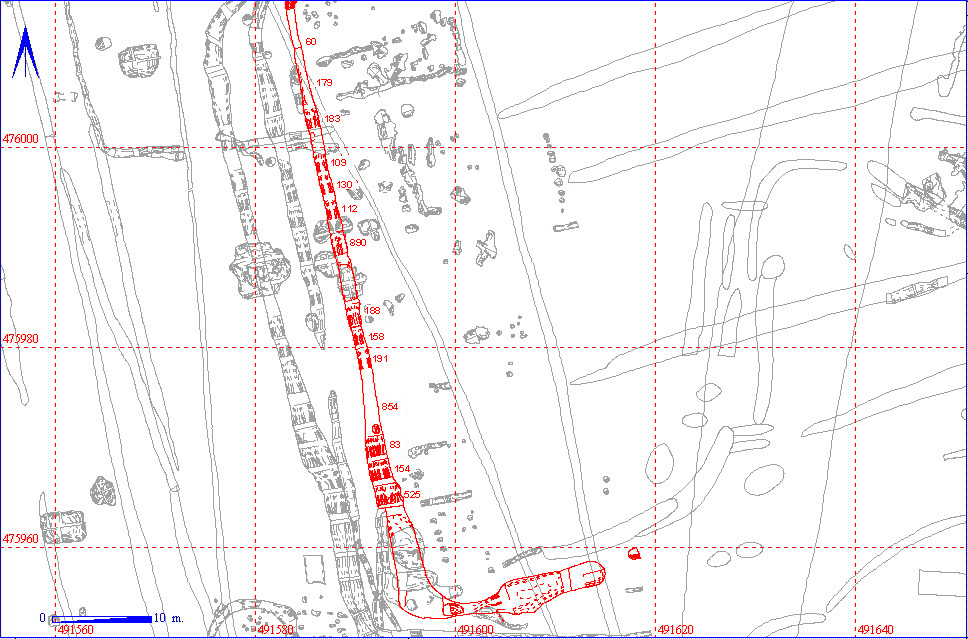

Discussion
The north-south aligned section of the middle phase of the large enclosure
system in area 11AB. The cut numbers discussed here are indicated in red.
The fill in the northern part of this section was generally a sandy clay
loam (Munsell colour 10/YR/34). Where a primary fill was detected, they
tended to have a higher sand content. Further to the south the fills were
generally a loamy sand (Munsell colours of 10/YR/43, 10/YR/34 and 10/YR/44)
with a much higher sand content than the northern fills. The finds, particularly
the pottery, indicate a Roman date for the enclosure, with generally small
quantities of Roman pottery found throughout the enclosure. Animal bone
finds were mainly cattle, sheep/goat and pig, with fewer horse bones. There
were occasional single dog bone finds, but no articulated skeletal material.
This section of the ditch had a number of stratigraphic relationships,
most notably cut by a Middle Saxon post-in-trench structure (011AB10013).
Unfortunately, it was exactly at the point where the two met that a modern
pipe trench cut through both of these features. The enclosure was also
cut by a number of pits and by later Saxon slots (just to the south of
the post-in-trench structure).
